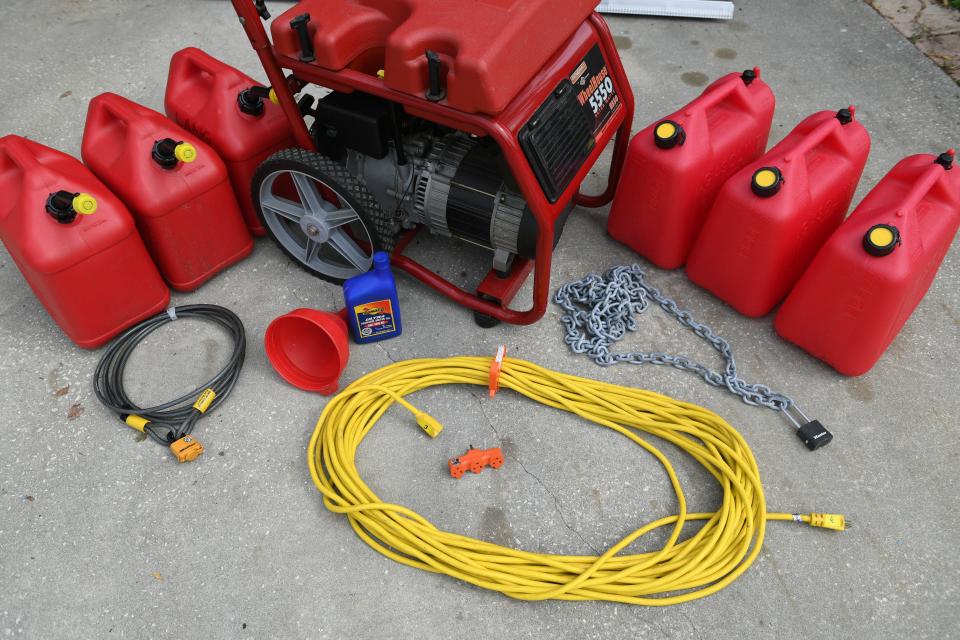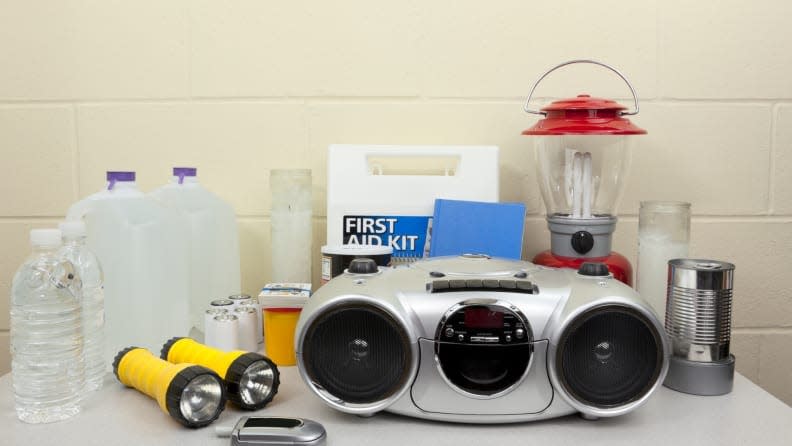Did the tornadoes leave you without power? Here’s what to do while it's out and when it's back on
Floridians in the Panhandle and in the northern regions of the state have had an eventful few days weather-wise. And it's still not over.
Multiple tornadoes and severe storms tore through the state last weekend, causing major destruction and leaving thousands without power for days.
Worst in history? Here's what happened in Tallahassee over the weekend
According to reports, three different tornadoes hit the region on Friday, with two of them EF-2 tornadoes. The twisters left behind a trail of destruction across college campuses, homes and businesses, along with downed trees and utility poles.
Tallahassee tornado damage: Did Tallahassee see worst tornado outbreak ever? Here's what we know
Were they the strongest tornadoes to hit the area? The National Weather Service tornado database has recorded two more powerful EF-3 tornadoes in Leon County's past.
Tallahassee was not the only city facing severe weather. In the days following, multiple counties have continued to see tornado and severe storm watches. Pensacola saw roads flooded and damaging winds on Monday.
What is considered a major power outage?
Between 2000 and 2021, around 83% of reported major power outages were caused by weather-related events, according to 2022 data from Climate Central.
By Climate Central’s definition of a major power outage – an outage in which at least 50,000 utilities customers lose power – the outages caused by the storms in North Florida came together to make a major power outage with more than 200,000 customers without power at one point.
My power is currently out. What do I do with food in a power outage?
When your power does go out, the Florida Department of Health stresses that you should not open the fridge or freezer. Keeping the cold air in will protect your food from spoiling.
They also suggest leaving one light switch on so that you’ll know when the power comes back on.
Before drinking any water, check with local authorities to be sure your tap water is safe to consume. If you are on well water, be prepared for pump outages.
If it’s very hot outside, try to stay cool by going to the lowest level of your home. Cool air falls, hot air rises. Wear lightweight, light-colored clothing and drink plenty of water, even if you don’t feel thirsty. Be sure to give pets lots of fresh water too.
Florida heat: How to keep cool in the Sunshine State when the power goes out
What do I need to know about generator safety?

Generators can be extremely helpful and crucial during a power outage. Here's what ready.gov, a national public service campaign that equips people to prepare for and respond to natural disasters and other emergencies, says to keep in mind before operating one:
Generators and fuel should always be used outdoors and at least 20 feet away from windows, doors and attached garages.
Install working carbon monoxide detectors on every level of your home. Carbon monoxide is a colorless, odorless gas that can kill you, your family and pets.
Keep the generator dry and protected from rain or flooding. Touching a wet generator or devices connected to one can cause electrical shock.
Always connect the generator to appliances with heavy-duty extension cords.
Let the generator cool before refueling. Fuel spilled on hot engine parts can ignite.
Follow manufacturer’s instructions carefully.
My power is back on now. What do I need to do now?
Wait a few minutes before turning on major appliances, Florida Health experts note it helps eliminate problems that could occur.
When tackling your food supply, know the saying — When in doubt, throw it out! Throw away any food that has been exposed to temperatures 40 degrees or higher for two hours or more, or that has an unusual odor, color or texture.
If the power is out for more than a day, experts say to discard any medication that should be refrigerated, unless the drug’s label says otherwise. Consult your doctor or pharmacist immediately for a new supply.
If your family and home are safe, check in with nearby neighbors and family members to let them know. See if they might want or need your help.
How do I prepare for a future power outage?

There are some steps you can start taking to prepare for upcoming storms and potential power potages, according to ready.gov.
Ready experts say to take an inventory of the items you need that rely on electricity. Make sure to plan for for batteries and other alternative power sources to meet your needs when the power goes out, such as a portable charger or power bank.
They also note to talk to your medical provider about a power outage plan for medical devices powered by electricity and refrigerated medicines. Find out how long medication can be stored at higher temperatures and get specific guidance for any medications that are critical for life.
As for food, make sure to have enough nonperishable food and water. Keep your freezers and refrigerators closed. Experts say a refrigerator will keep food cold for about four hours, while a full freezer will keep the temperature for about 48 hours. Use coolers with ice if necessary.
Lastly, communicate with family members on any plans you have of sheltering during a storm or possibilities of evacuating.
Contributing reporting: Cheryl McCloud, USA Today Florida Network
This article originally appeared on Fort Myers News-Press: Power outage safety: What to know during and after your power goes out

